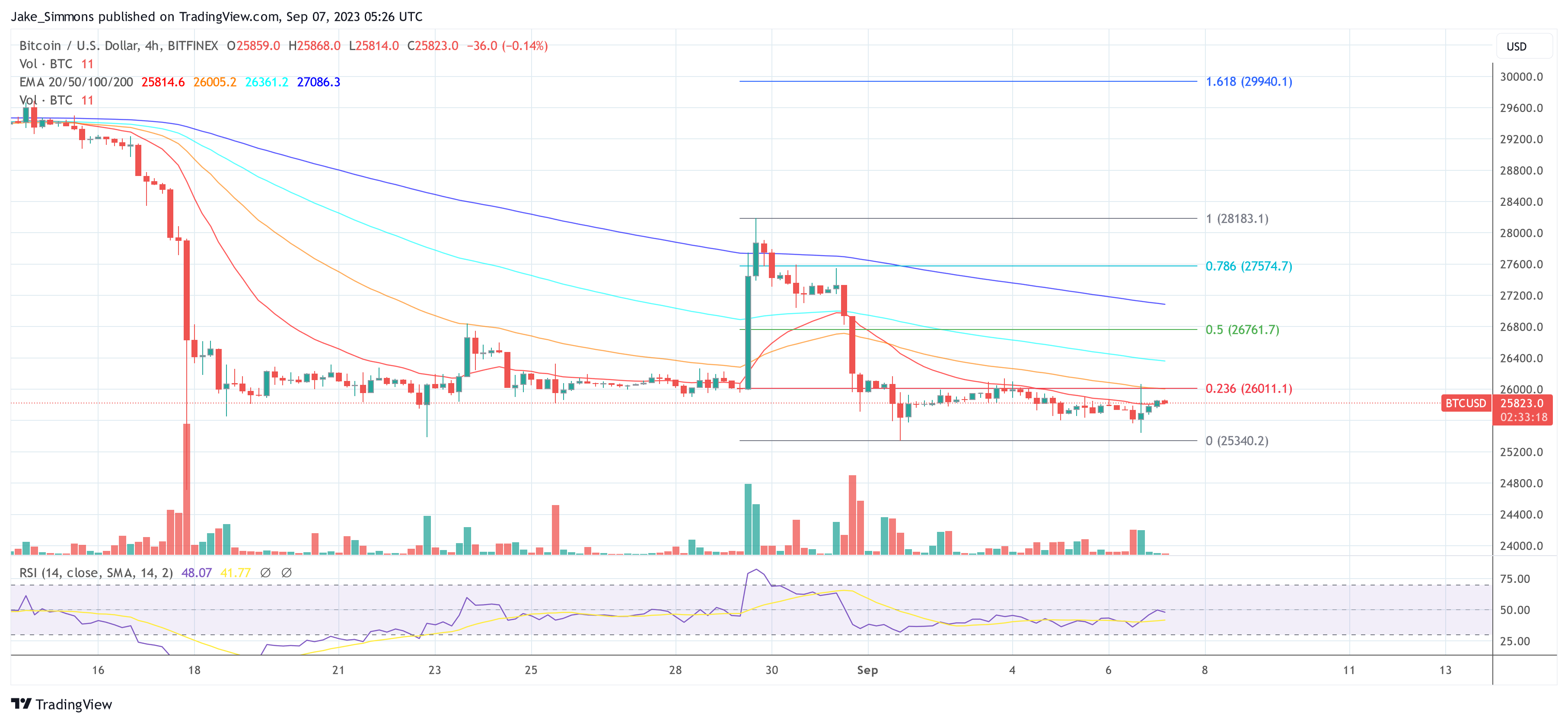Why 2024 Spells Bitcoin Adoption For Tech Giants Like Apple
In a groundbreaking move, US accounting standard-setters have unanimously voted to introduce new accounting rules for businesses with significant holdings in cryptocurrencies such as Bitcoin and Ethereum. This decision, expected to be published by year-end, could pave the way for tech giants like Apple, Amazon, and Google to include Bitcoin and altcoins on their balance sheets as early as 2024.
New Paradigm In Bitcoin And Crypto Accounting
Under the rules, expected to be published by the end of the year, companies will be mandated to report their cryptocurrency holdings at “fair value.” This measurement seeks to present the most recent value of an asset, even accounting for rebounds in value after potential price drops. This is a significant shift from the current practice, which many companies and accountants have criticized for its lack of flexibility.
Christine Botosan, a member of the Financial Accounting Standards Board (FASB), remarked, “It’s not very often that we can both take cost out of the system and improve the decision usefulness of information, and it makes it a really easy vote to do both of those.” The new standards will be effective from 2025, but companies can opt for early adoption.
Jeff Rundlet, head of accounting strategy at Cryptio, lauded the decision, stating, “It’s a great step forward for the entire crypto market. I think it’s a great step toward mainstream adoption. I can see finalizing this proposal to help large corporations that are maybe scared to hold crypto on their balance sheet because they’re scared of the technical complexities.”
The recent announcement by the Financial Accounting Standards Board (FASB) has sent ripples through the crypto community, with many seeing it as a monumental shift in the corporate adoption of Bitcoin and other cryptocurrencies. Swan Bitcoin, a leading voice in the crypto sphere, took to Twitter to elucidate the significance of this change.
Why This Is Crucial For Companies
Swan Bitcoin, a prominent voice in the crypto community, took to Twitter to shed light on the significance of this change. In a tweet, they outlined the key takeaways from the news. The introduction of these new accounting rules is a pivotal moment for businesses that have invested or are considering investing in Bitcoin and other cryptocurrencies.
The shift to reporting at fair value means that companies will now be able to reflect the most current value of their Bitcoin assets, even accounting for rebounds after potential price declines. This is a marked departure from the previous lack of specific US accounting rule book guidance for crypto assets.
Before this change, companies had been relying on the American Institute of CPAs practice guide. This guide treated Bitcoin similarly to intangible assets like trademarks or copyrights, a method that did not allow for adjustments if the market recovered after a dip.
The new approach to fair-value reporting is set to provide investors with a more transparent and relevant view of a company’s financial position concerning their Bitcoin holdings. This is especially crucial as the crypto market is known for its volatility.
With these new rules, both public and private companies will be mandated to adopt these standards for fiscal years starting after December 15, 2024. Remarkably, they can opt-in to adopt the rule as early as 2024 (after the rule is published at the end of this year), setting the stage for a 2024 adoption of Bitcoin as a reserve asset by companies.
In terms of disclosure requirements, companies will be obligated to make a distinct entry for crypto assets in their balance sheets. This means they will need to disclose significant Bitcoin holdings and any associated restrictions in their footnotes for every reporting period. Furthermore, they will be required to provide annual disclosures of changes in their crypto assets’ opening and closing balances, categorized by type. However, there are some exemptions, such as immediate Bitcoin-to-cash conversions.
The scope of the FASB’s rules is also noteworthy. They will cover assets on distributed ledgers that are based on blockchain technology and are secured via cryptography. These assets are currently labeled as intangible assets under US accounting rules and are fungible. However, it’s important to note that Non-fungible tokens (NFTs), stablecoins, and wrapped tokens are not included in these rules.
The FASB’s decision to introduce these rules comes after a period of reluctance. Their change in stance can be attributed to the growing interest and investment in cryptocurrencies by major corporations. The board has indicated that they will continue to monitor the crypto markets closely, suggesting that more rules could be introduced in the future. This move is widely seen by industry insiders as the “right first step” towards mainstream adoption.
Swan Bitcoin’s tweet emphasized the positive implications of this development for Bitcoin. This sentiment was further echoed by MicroStrategy’s CEO, Michael Saylor, who stated, “Fair value accounting is coming to Bitcoin. This upgrade to FASB accounting rules eliminates a major impediment to corporate adoption of BTC as a treasury asset.”
Given the significance of these changes, it’s not far-fetched to anticipate that tech behemoths like Apple, Amazon, or Google might soon consider integrating Bitcoin into their balance sheets, further accelerating the mainstream adoption. Apple CEO Tim Cook answered “yes” to the question of whether he owns Bitcoin or Ethereum in 2021.
Other tech giants like Amazon and Google are also actively involved in the crypto market with various projects. So why shouldn’t 2024 be the year where one of these companies announces its Bitcoin strategy?
At press time, the BTC price was at $25,823.

Featured image from iStock, chart from TradingView.com
